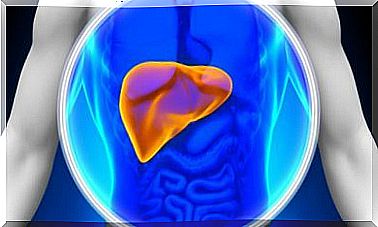Spinach: 12 Health Benefits
Did you know that spinach has strong anti-inflammatory properties ? The excellent active ingredients in these leafy vegetables can help relieve arthritis pain and improve heart health as well.

Spinach: It contains important minerals, vitamins, pigments and phytonutrients and is therefore very healthy. These include, for example, potassium, magnesium, zinc, manganese, iron and calcium.
One of the most important reasons why spinach is very popular and widely used around the world is not only its healthy ingredients, but also its shelf life.
It can survive the winter and also provide valuable nutrients in the spring, can simply be frozen, served raw in salads or cooked as a side dish.
In the kitchen, spinach can be used in a wide variety of recipes for soups, stews or salads. Then you will learn more about the health benefits of these vegetables.
Benefits of Spinach
1. Spinach: prevents stomach ulcers
The study, Conventional Treatment and Alternative Medicine for Peptic Ulcer stresses the importance of spinach in the treatment of peptic ulcer disease.
This is because the spinach protects the stomach lining and is rich in vitamin A.
2. Protect your brain
Various ingredients in spinach, such as potassium, folates and various antioxidants, promote nerve health when consumed regularly, as they support the balance of chemical processes in the brain.
Folates reduce the likelihood of developing Alzheimer’s disease, which is why this leafy vegetable is particularly recommended for people in the risk group for neuronal degeneration.
3. Helps with eye diseases
Spinach is rich in beta-carotene, lutein and xanthene and therefore also promotes eye health. When you eat the green vegetables cooked, the beta-carotene they contain is transported directly to the eyes.
Spinach can also help with a vitamin A deficiency, itchy eyes, ulcers in the eyes or dry eyes.
According to an article in the Journal of the American Medical Association (JAMA), the intake of zeaxanthin and lutein helps prevent conditions such as macular degeneration and cataracts.
It is said that spinach even helps with existing damage. However, more research needs to be done.
4. Regulates blood pressure

As already mentioned, the green leafy vegetables contain a lot of potassium, but are low in sodium. The composition of minerals helps to reduce high blood pressure.
The folic acid it contains is also of great importance for blood pressure: it relaxes the blood vessels, reduces stress on the cardiovascular system and improves the oxygen supply to the organs and thus their performance.
5. May have an anti-cancer effect
Spinach contains various substances that show promise in the prevention and treatment of various types of cancer, which this article refers to. These include, for example, bladder cancer, prostate, liver and lung cancer.
According to this study, the lutein found in green leaves can prevent harmful cells from growing.
6. Relieves inflammation
Spinach contains a wide variety of anti-inflammatory agents, over a dozen in all. Therefore, this vegetable is highly recommended for inflammation throughout the body.
This means that the green leafy vegetables not only protect the heart and prevent dangerous inflammation and cancer, they also help with arthritis pain and gout, which millions of people around the world suffer from.
7. Strengthens the bones
Spinach is an excellent source of vitamin K, which plays an important role in the storage of calcium in the bones. In addition, the leafy vegetables contain minerals such as manganese, copper, magnesium, zinc and phosphorus, which are also very important for strong bones.
This can prevent osteoporosis. These minerals are of course very important for healthy teeth and fingernails and toenails.
8. Prevents atherosclerosis and stroke
Atherosclerosis results from the hardening of the arteries. It has been shown that the high antioxidant content in spinach helps prevent atherosclerosis, heart attacks and strokes.
This is because the green vegetables lower cholesterol and other blood lipid levels.
9. Improves metabolism
Nutritionists also recommend the regular consumption of spinach because the proteins it contains, which are very important for the human body, can be easily broken down by enzymes and amino acids.
10. Prevents macular degeneration and cataracts
Retinopathia pigmentosa (RP) is a retinal degeneration that can lead to blindness. This is due to the fact that lutein and xanthene, which play a central role in the retina, degenerate.
In a study by the Oak Ridge National Laboratory , it was found that eating spinach can help recover these two pigments, which are crucial for eyesight, and thus effectively prevent RP.
Spinach is also known for the antioxidants it contains, which inhibit the effects of free radicals, which are also harmful to eyesight and can lead to diseases such as glaucoma or macular degeneration.
11. Strengthens your muscles
The green leafy vegetables also contain Co-Q10, an antioxidant that plays an important role in the muscles. This strengthens the heart muscles in particular, which have to continuously pump the blood through the body.
According to the Journal of Cardiovascular Nursing , Co-Q10 can be used to prevent cardiovascular diseases such as hyperlipidemia, heart failure, high blood pressure and other heart diseases.
12. Cares for the skin
In addition, it has been shown that the various phytonutrients and pigments in spinach protect the skin from harmful sun rays, including UV rays, and at the same time promote the repair of the damaged genes to a certain extent.
As you can see, spinach has many health benefits. That’s why it should definitely be on your menu. Do you already know what to cook with it?









